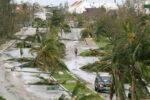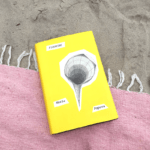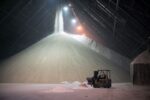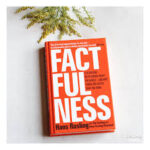Will 2021 be the year of living dangerously?
As the third decade of the 21st century gets under way, we will look back on 2021 as a year when the future of our life on earth balanced on a fulcrum. But which way will we lean? Will we grind out a post-COVID-19 recovery along the lines of the recovery from the last great global financial crisis in 2009 towards a more dangerous future of higher consumption and emissions? Or will policy-makers, politicians, business leaders and civil society summon their collective imaginations, cooperative spirit and willpower to craft stimulus packages and investments that lead to a more sustainable, nature-friendly future? Last year broke yet more of the wrong kinds of environmental records. A peak temperature of 38°C inside the Arctic Circle. Wildfires in the Amazon that spread to the Pantanal, the world’s largest tropical wetland, driving a drought that cost Brazil’s agriculture sector $3 billion. Historic levels of flooding along the Yangtze, affecting 63 million people. More Californian fires to add to the $148 billion of losses from 2018’s fires. A record number of Atlantic hurricanes making landfall. 300mThe estimate of the number of people who live in places where climate-triggered flooding will likely occur by 2050 5xGreenland’s loss of ice when compared with the melt rate 25 years ago 23%The percentage of global climate change emissions that the degradation of ecosystems is responsible for $44tnOr one-half of all global GDP depends on nature and is threatened by its loss 1mThe number of species at risk from extinction Yet amid the storm clouds of grim statistics are some sunbeams of hope. Last year saw a doubling in the number of companies committing to net-zero targets. The election of Joe Biden means the three largest carbon emitters in the world – China, the EU and the US – have all committed […]










